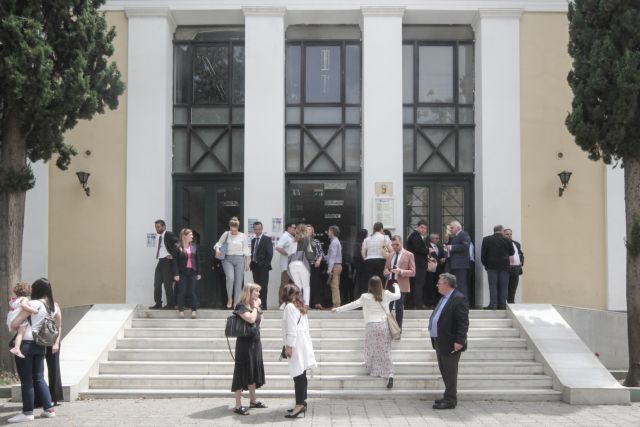From the first months of the Tsipras administration and especially after the second general election in September, 2015, when the stratagem of annihilating opposition politicians and pro-opposition media was hatched, there were charges that the government wanted to use the judiciary as a political tool.
Government interventions in the judiciary since then occur almost daily as do governmental machinations. The effort to control, influence, and politically guide judicial functionaries were patently obvious.
The government appointed judges that were willing to serve its designs and those who did not fall in line were thrown by the wayside. Some faced disciplinary action.
Over time, there emerged an environment of hostility toward and the chasing of supposed enemies of the people, allegedly in the name of serving justice.
Individuals were dragged through the mud and closed cases were reopened and placed in the limelight.
Charges were filed without sufficient evidence and were supported by manufactured press reports serving ulterior motives.
When the charges collapsed and their vacuity was revealed, the mechanisms that were set up did everything in their power to keep them in the public eye so that the accused might be condemned by public opinion and so that an uproar could be stirred against the government’s opponents.
Many even compared the situation in Athens with the Stalinist show trials in Moscow in 1936.
Countless cases in the last four years were warmed over in violation of basic judicial rules and principles.
The pinnacle of the practice of using the judiciary as a tool and manufacturing guilty parties was the Novartis case.
Ten distinguished opposition politicians were dragged through the mud without sufficient evidence and based solely on hearsay peddled by untrustworthy protected witnesses.
Over the last days we saw letters and mutual recriminations between prosecutors who played a leading role in the case.
They revealed unprecedented machinations and confirmed press suspicions of an effort to manipulate the judiciary to serve the government’s ends.
Even the last actions of the government with its effort in the midst of an election campaign to appoint the Supreme Court Chief Justice and Prosecutor that it prefers undermined the judiciary’s future credibility.
The judicial functionaries chosen bear the stigma of a problematic and disputed procedure that will accompany them, regardless of whether or not President Prokopis Pavlopoulos signs the mandatory Presidential Decree confirming their appointment.
It has been proven that the government tampered with the judiciary and turned Themis – the blindfolded symbol of impartial justice – into a one-eyed div.
It divided and singled out judges. It provocatively favoured “its own” judges. It isolated perceived opponents in the judiciary and created conditions of absolute partiality to benefit specific ends and forces.
In short, the government undermined and shook the trustworthiness of the judiciary.
Unfortunately, many believe that in our country justice is often not served and that cases are manufactured in order to settle accounts.
Unfortunately, all this is happening even as international organisations stress that judicial reform is a crucial factor in the effort to achieve economic and social progress in Greece.




